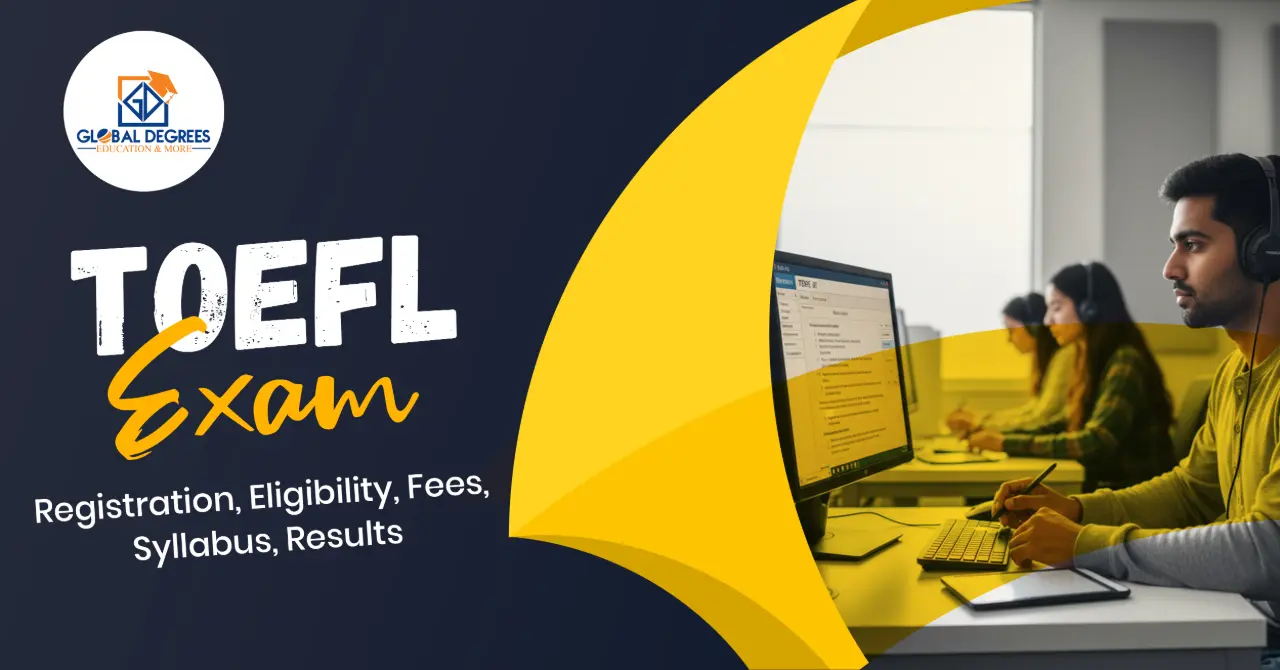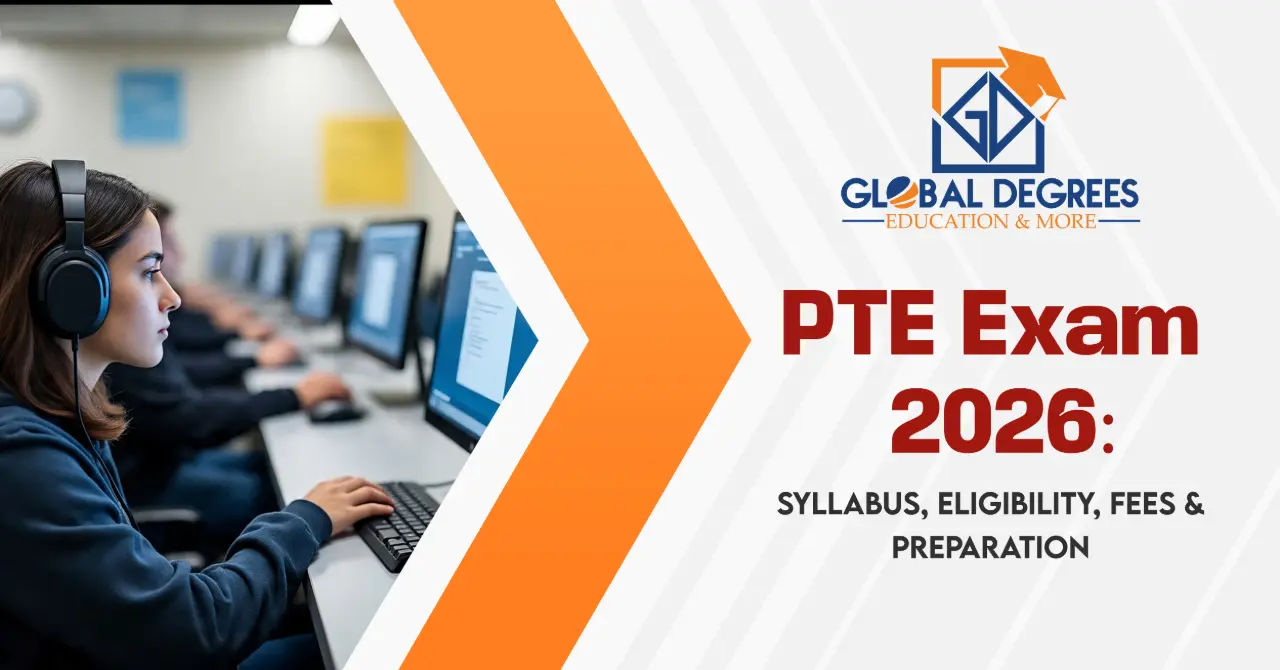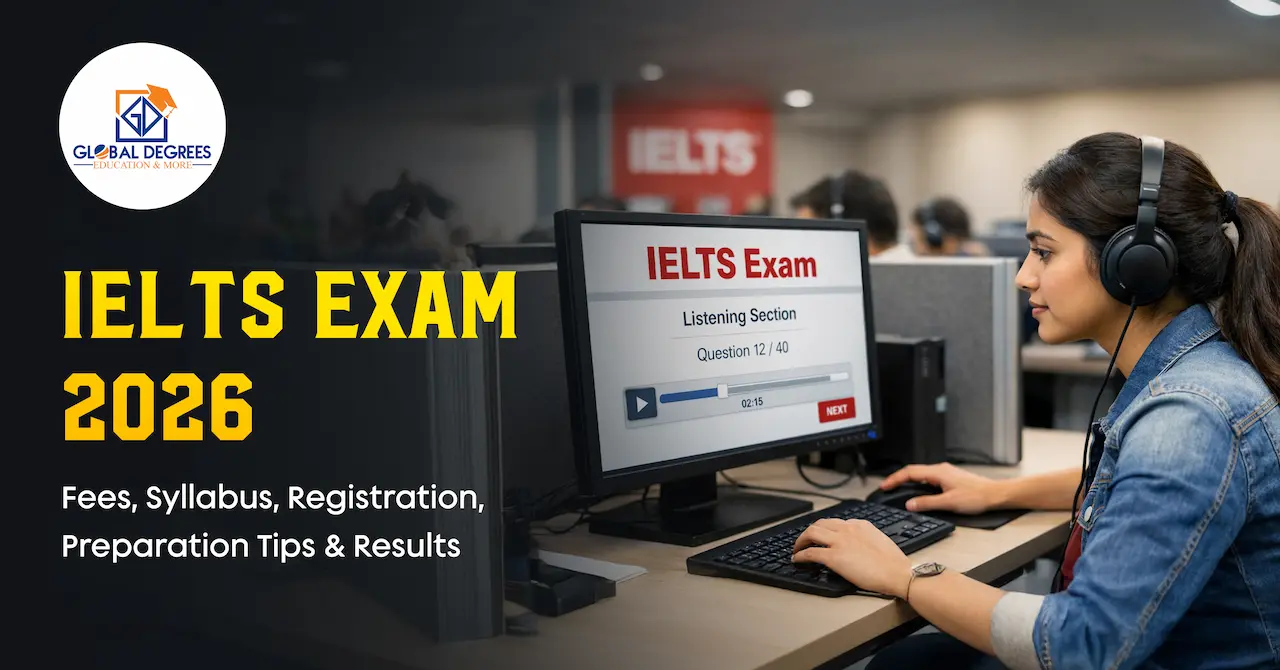Study in UK Consultants in Hyderabad: Maximize Opportunities

Considering pursuing higher education in the UK but unsure about the admission process and job opportunities post-graduation? Global Degrees- Your Study in UK Consultants in Hyderabad are here to guide you.
We explore why the UK is a popular destination for higher education, the basic requirements and key documents needed for admission, as well as tips on applying for a student visa.
Delve into the job prospects in the UK for international students and discuss work visa options available to maximize job opportunities.
Stay tuned to make the most out of your study abroad journey!
What Makes the UK a Popular Destination for Higher Education? A Study in UK Consultants in Hyderabad Overview
The UK has long been a favored destination for higher education due to its rich history, cultural diversity and the presence of some of the world’s top-ranking universities, which attract students from all over the globe seeking quality education and diverse learning experiences.
Study in UK Consultants in Hyderabad guide for Admission Process in the UK Universities
What Are the Basic Requirements for Admission?
The basic requirements for admission to UK universities typically include completion of secondary education, followed by further education qualifications, which vary depending on the chosen course and university.
When applying to undergraduate programs, students are usually expected to have completed their A-levels or equivalent qualifications.
For postgraduate studies, a relevant bachelor’s degree is often required, while some courses may necessitate relevant work experience or additional entrance exams.
Each university and course may have specific prerequisites, such as a minimum GPA, English language proficiency tests like IELTS or TOEFL and letters of recommendation.
It’s important for prospective students to carefully review the specific admission criteria for each program they are interested in to ensure they meet all the necessary requirements.
Undergraduate Programs
For undergraduate programs, UK universities typically require the completion of secondary education equivalent to the UK’s A-levels. Indian students, for example, need to have completed their 12th grade through CBSE, ICSE or a state board. The specific subject requirements and grades vary depending on the program applied for. For instance:
- Engineering programs may require a strong background in Mathematics and Physics.
- Medical programs often demand high grades in Biology and Chemistry.
- Arts and Humanities courses might have more flexible subject requirements but still look for strong academic performance.
For undergraduate entry, students are expected to present their qualifications equivalent to the UK’s A-levels. This could include:
- IB Diploma: International Baccalaureate (IB) scores with specific subject grades.
- Indian School Certificate (ISC): High school certificates with a percentage that meets the course requirement.
- Higher Secondary School Certificate (HSSC): State board exams with required percentages.
Postgraduate Programs
For postgraduate admissions, a relevant bachelor’s degree is required, typically with a good academic standing (usually a minimum of a second-class honors degree or its international equivalent). Some programs may require work experience or passing standardized tests such as the GRE or GMAT, especially for business or management courses.
Specific Course Requirements
Each program may have its own prerequisites such as:
- Minimum GPA: Universities may specify a minimum grade point average (GPA) requirement.
- Prerequisite Subjects: Certain subjects may be mandatory at the high school or undergraduate level.
- Portfolio or Auditions: For creative courses like art, design or music, portfolios or auditions may be required.
- Entrance Exams: Some programs might require additional tests like the UKCAT for medicine or the LNAT for law.
English Language Proficiency
Proficiency in English is crucial as it ensures students can cope with the demands of studying in an English-speaking environment. Most UK universities require proof through standardized tests:
- IELTS (International English Language Testing System): Generally, a minimum score of 6.0 to 7.0 overall, with no less than 6.0 in each component (reading, writing, listening, speaking).
- TOEFL (Test of English as a Foreign Language): Scores typically range from 80 to 100 on the internet-based test (iBT), with specific section scores varying by institution.
- PTE Academic (Pearson Test of English): A minimum score usually around 56 to 66, depending on the university.
What Are the Study in UK Consultants in Hyderabad Suggested Key Documents Required for Admission?
1.Statement of Purpose
Among these documents, the Statement of Purpose stands out as a crucial component of the application package. It provides the admissions committee with a glimpse into the applicant’s goals, motivations and aspirations. A well-crafted Statement of Purpose can greatly influence the decision-making process, showcasing the candidate’s academic and personal background, research interests, career objectives and reasons for choosing the specific program.
Key pointers to be kept in mind while drafting an SOP:
- Your academic and career goals: Describe your motivation for choosing the particular course and how it aligns with your career aspirations.
- Relevant experiences: Highlight your academic achievements, internships, work experience, and extracurricular activities.
- Why the chosen university: Explain why you have chosen this specific university and program, mentioning aspects like faculty, facilities, or the university’s reputation.
- Future plans: Discuss your long-term career goals and how the program will help you achieve them.
2.English proficiency tests
Proof of English proficiency, such as IELTS or TOEFL scores, is vital to demonstrate the candidate’s ability to study and communicate effectively in English, a key requirement for academic success in a UK university setting.
3.Academic Transcripts
Submit certified copies of your academic records, including:
- Secondary school transcripts: Including grades and subjects taken during high school.
- Higher education transcripts: For postgraduate applications, provide transcripts from your bachelor’s degree.
4. Letters of Recommendation (LORs)
Letters of recommendation are written by individuals who can vouch for your academic or professional capabilities. Typically, you will need:
- Academic LORs: From teachers or professors who can attest to your academic abilities.
- Professional LORs: For postgraduate applications or if you have significant work experience, letters from employers or supervisors.
5. Curriculum Vitae (CV) or Resume
A CV provides a summary of your academic qualifications, work experience, skills and achievements. Ensure it is up-to-date and tailored to the course you are applying for.
6. Passport Copy
A valid passport copy is essential for identification and to facilitate visa processing.
How to Apply for a Student Visa?
Applying for a student visa to study in the UK involves understanding the visa requirements and immigration criteria, preparing the necessary documentation and often seeking assistance from consultants to navigate the application process successfully.
Once you have a confirmed place at a UK educational institution, the initial step is to gather essential documents such as a valid passport, proof of financial capability to support yourself during your study period, a signed confirmation of acceptance for studies (CAS) from your institution and any relevant academic transcripts and certificates. Meeting visa requirements is crucial to ensure a smooth application process.
Guidance from experienced Study in UK Consultants in Hyderabad can be beneficial in understanding the intricate visa application procedures and providing support in filling out the necessary forms accurately. It’s vital to double-check all documents and information to comply with UK immigration criteria and increase the likelihood of a successful visa application.
1.Understanding Visa Requirements
You will need a Student Visa (formerly Tier 4) to study in the UK. Key requirements include:
- Confirmation of Acceptance for Studies (CAS): A unique reference number provided by your university.
- Proof of financial capability: Documents showing you have sufficient funds to cover tuition fees and living expenses.
2.Preparing Essential Documents
Prepare the following documents for your student visa application:
- Valid Passport: Ensure your passport is valid for the duration of your stay.
- CAS Number: Issued by your university, confirming your acceptance.
- Financial Proof: Bank statements or a sponsorship letter demonstrating sufficient funds.
- Academic Transcripts: Certified copies of your qualifications.
- English Language Test Results: Proof of meeting the language proficiency requirements.
- Tuberculosis Test Results: Required if you are from a country where TB screening is mandatory.
- Biometric Information: Fingerprints and photographs at a visa application center.
3. Completing the Visa Application with Study in UK Consultants in Hyderabad
You can apply for a student visa online via the UK government’s official website. Follow these steps:
- Create an account: Register and complete the online application form.
- Upload documents: Attach all required documents.
- Pay the fee: Submit the visa application fee and the Immigration Health Surcharge (IHS).
- Schedule an appointment: Book an appointment at a visa application center to provide biometric information.
4. Seeking Professional Guidance from Study in UK Consultants in Hyderabad
Seeking advice from Study in UK Consultants in Hyderabad visa advisors can be beneficial. They can help you understand requirements, prepare documents, and ensure your application is complete and accurate.
5.Attending the Visa Interview under Study in UK Consultants in Hyderabad guidance
If required, attend the visa interview at the designated visa application center. Be prepared to discuss your course, university, financial situation and post-study plans.
Common Reasons listed by Study in UK Consultants in Hyderabad for Visa Rejection
When applicants fail to provide all the necessary documentation or do not meet the specific requirements outlined by immigration authorities, their chances of approval diminish significantly. Oftentimes, simple mistakes on the visa application form, such as typos or missing information, can lead to a quick refusal. Inadequate proof of financial resources or educational background can raise doubts about the applicant’s ability to support themselves while studying abroad.
Avoid these common pitfalls by ensuring:
- Complete and accurate application: Double-check all forms for accuracy and completeness.
- Adequate financial proof: Provide clear and verifiable evidence of financial capability.
- Meeting immigration criteria: Ensure you meet all specified immigration requirements, including health screenings.
Study in UK Consultants in Hyderabad listed Job Opportunities in the UK After Graduation
Upon graduating from UK universities, international students can explore a range of job opportunities, including post-study career opportunities and part-time job options, provided they meet the necessary visa requirements and align their job search with their field of study.
What Are the Job Prospects in the UK for International Students?
The job prospects for international students in the UK are quite promising, with numerous career opportunities available in various industries, especially for those who capitalize on their post-study work period.
International graduates can find themselves in high-demand sectors such as technology, finance, healthcare and engineering, where their diverse skill sets and global perspectives are highly valued.
Engaging in internships or work placements during their studies can serve as a stepping stone towards securing full-time employment post-graduation. The post-study work period allows individuals to gain practical experience, build professional networks, and explore potential avenues for obtaining sponsorships or skilled work visas to extend their stay and continue advancing in their careers.
The UK offers diverse job opportunities for international graduates. Understanding the job market and available visa options is essential for those wishing to work in the UK post-graduation.
Study in UK Consultants in Hyderabad -Job Prospects for International Students
International students in the UK can find opportunities in various sectors:
- Technology and IT: Growing demand for skills in software development, data science, and cybersecurity.
- Finance and Banking: Strong job prospects in financial services, investment banking, and accounting.
- Healthcare: Demand for healthcare professionals, including nurses, doctors, and allied health staff.
- Engineering: Opportunities in civil, mechanical, and electrical engineering.
- Creative Industries: Growth in media, design, and marketing sectors.
Internships and Work Placements
Internships and work placements during studies provide practical experience and enhance employability. Benefits include:
- Real-world experience: Apply academic knowledge in a professional setting.
- Networking opportunities: Build connections with potential employers.
- Skill development: Develop industry-specific skills and professional competencies.
How to Maximize Job Opportunities in the UK?
To maximize job opportunities in the UK, students should leverage career guidance programs, seek advice from mentors and actively participate in internships and networking events to build professional connections.
Engaging in internships provides hands-on experience in the field, allowing individuals to apply theoretical knowledge to real-world situations. Seeking mentors offers invaluable insights and guidance from seasoned professionals who can help navigate the complexities of the job market.
Participating in career guidance programmes equips students with essential skills such as CV writing, interview preparation, and job search strategies. Building a strong professional network opens doors to hidden job opportunities and fosters long-lasting relationships within the industry.
To maximize job opportunities, students should leverage career guidance resources, seek mentorship, and actively engage in internships and networking events.
Career Guidance Programs
Universities offer career services that include:
- CV writing workshops: Learn how to create an effective CV.
- Interview preparation: Practice mock interviews and learn interview techniques.
- Job search strategies: Guidance on job hunting and application processes.
Mentorship
Finding mentors in your field can provide:
- Career advice: Insights into industry trends and career paths.
- Networking: Introductions to potential employers and professional contacts.
- Support: Guidance through the job search and career development process.
Internships and Work Experience
Internships offer hands-on experience and are critical for:
- Building skills: Apply classroom learning to practical situations.
- Creating networks: Meet professionals and build relationships within the industry.
- Improving employability: Gain relevant experience that enhances your CV.
Networking Events
Participating in networking events, such as career fairs and industry conferences, helps:
- Build connections: Meet employers and industry professionals.
- Explore opportunities: Discover job openings and internships.
- Enhance visibility: Increase your profile within your chosen field
Post-Study Work Visa Options
According to Study in UK Consultants in Hyderabad, Several visa options are available for international students wishing to work in the UK after graduation:
Graduate Route Visa
The Graduate Route Visa allows international students to stay in the UK for two years (three years for PhD graduates) to seek employment or start a business. It offers:
- Flexibility: No requirement for a job offer at the time of application.
- Work opportunities: Freedom to work or look for employment in any field.
Skilled Worker Visa (formerly Tier 2)
The Skilled Worker Visa is for those who have a job offer from a UK employer who is a licensed sponsor. Key points include:
- Job offer requirement: Must have a job offer from an approved employer.
- Minimum salary threshold: The job must meet the minimum salary and skill level requirements.
- Path to settlement: Can lead to permanent residence in the UK after five years.
Start-up and Innovator Visas
For graduates with entrepreneurial ambitions, the Start-up and Innovator Visas offer opportunities to stay in the UK while developing a business. These visas require:
- Endorsement: A viable business idea endorsed by a UK higher education institution or the Department for International Trade.
- Innovation: The business must be innovative, viable, and scalable.
Conclusion
Navigating the admission process for UK universities requires careful planning and preparation. Meeting academic and language proficiency requirements, gathering and submitting key documents, and understanding the student visa process are essential steps toward gaining admission and successfully studying in the UK. Post-graduation, a wealth of job opportunities awaits, and leveraging career resources, internships, and networking can maximize your prospects. By following this comprehensive guide, prospective students can confidently approach their journey to studying and working in the UK, ensuring a fulfilling and successful academic and professional experience.
Frequently Asked Questions
Key documents include a Statement of Purpose (SOP), proof of English proficiency (e.g., IELTS, TOEFL), academic transcripts, Letters of Recommendation (LORs), a Curriculum Vitae (CV) and a valid passport.
Your SOP should cover your academic and career goals, relevant experiences, reasons for choosing the university and program and your long-term career plans.
You can demonstrate English proficiency through standardized tests like IELTS (typically a minimum score of 6.0 to 7.0), TOEFL (80 to 100 iBT), or PTE Academic (scores around 56 to 66).
Obtain a Confirmation of Acceptance for Studies (CAS), gather essential documents (e.g., passport, financial proof), complete the online application, pay the fees, schedule a biometric appointment, and potentially attend a visa interview.
Common reasons include incomplete or inaccurate applications, inadequate financial proof and failure to meet specific immigration criteria such as health screenings.
Graduates can explore opportunities in technology, finance, healthcare, engineering and creative industries, among others. Internships and work placements during studies can enhance employability.
Global Degrees
Related Post

Scholarship for Indian Students to Study Abroad:

TOEFL Exam 2026: Full Form, Syllabus, Eligibility,

PTE Exam: Full Form, Pattern, Syllabus, Registration,

IELTS Exam 2026: Full Form, Fees in

How to Study for Long Hours The

How to study abroad after 12th from











